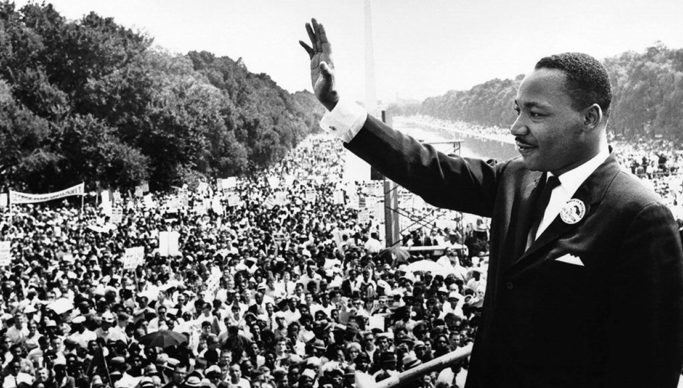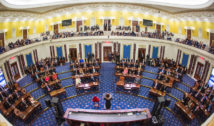
“I Have A Dream” 60 Years Later – Martin Luther King III Leads A Second March On Washington
- By Deirdre Pelphrey --
- 01 Sep 2023 --
In 1863, President Abraham Lincoln, with a stroke of the pen, signed the document that signaled the beginning of the end of slavery. No more could a human being own another human being. With the Emancipation Proclamation the promise made four score and seven years earlier, that “all men are created equal” took a step—a momentous step—to being realized.
A century later, on August 26, 1963, Dr. Martin Luther King, Jr., the great-grandson of one of those freed slaves, led a march on Washington, D.C., sharing his dream with the 100,000 assembled “that my four little children will one day live in a nation where they will not be judged by the color of their skin, but by the content of their character.”
Sixty years later, on August 26, 2023, the eldest of those children—Martin Luther King III—led a second March on Washington, not as a commemoration, but as a continuation of the struggle for civil and human rights.
“It feels like we’ve gone backwards in relationship to civil and human rights,” King said before the march. “Dad talked about eradicating the triple evils of poverty, racism and violence. … Just about any problem that we are faced with in our nation falls under one of those categories. So, we have to be more vigilant, we have to be more engaged, we have to be more, in fact we are, more determined than ever to actually address these great issues.”
King’s wife, Arndrea Waters King, added that because her father-in-law’s dream is still far from realized, a rededication to it is crucial. “Over the past two years, when we are literally witnessing oppression being legislated, when we have witnessed the physical attack on democracy with an insurrection,” she said, “I believe it is more critical than ever to have some type of optimism.”
And so they gathered again, most of them from a new generation, while some—like Andrew Young, age 91—served as reminders of that day in 1963 when two generations reached a crossroads—an older generation with memories of the normalization of Jim Crow, lynchings and segregation, together with a new generation of defiance and protest—and together took the same path to wake a nation from decades of complacent acceptance into a demand for equal rights and justice for all.
Young, familiar with the ways of the city and its people as Atlanta mayor, member of Congress, and UN ambassador, reminded the crowd of over 70,000 that their votes do count, and that each ballot cast is “the passport to freedom and opportunity.”
“Don’t look at all the things that are wrong — look back at where we were … years ago when we had the first March on Washington,” he said.
Other speakers included Dr. King’s granddaughter, Yolanda Renee King, who said, “If I could speak to my grandfather today, I would say, ‘I’m sorry we still have to be here to rededicate ourselves to finishing your work, and ultimately realizing your hidden dream.’”
The diversity of speakers reflected the mosaic of faiths, races and traditions in the crowd. From comedian and “Borat” actor Sacha Baron Cohen to New England Patriots owner Robert Kraft, House Minority Leader Hakeem Jeffries (D-N.Y.), labor leaders, activists, rabbis and reverends, other faith leaders and lawmakers, performers and a tapestry of genders and colors, young and old—all there to rekindle and refuel Dr. King’s dream of 60 years earlier.
“Sixty years ago, Martin Luther King talked about a dream,” said Rev. Al Sharpton, founder of the National Action Network. “Sixty years later, we’re the dreamers — the problem is we’re facing the schemers.”
The “dreamers,” Sharpton explained, were those in the crowd and elsewhere who resist various forms of hatred and advocate for human and civil rights. The “schemers,” mea nwhile, are their opponents. “The dreamers are in Washington, D.C.,” Sharpton said. “The schemers,” he added, in a reference to the dozen and a half indictees who attempted to overthrow the election, “are being booked in Atlanta, Georgia in the Fulton County Jail.”
As if to highlight the urgency of immediate action for equality and human rights, a white gunman fatally shot three people at a Dollar General store in Jacksonville, Florida. The racially motivated incident happened while multitudes gathered, just 700 miles away to pray for an end to the bigotry that spawns such hateful acts.


















